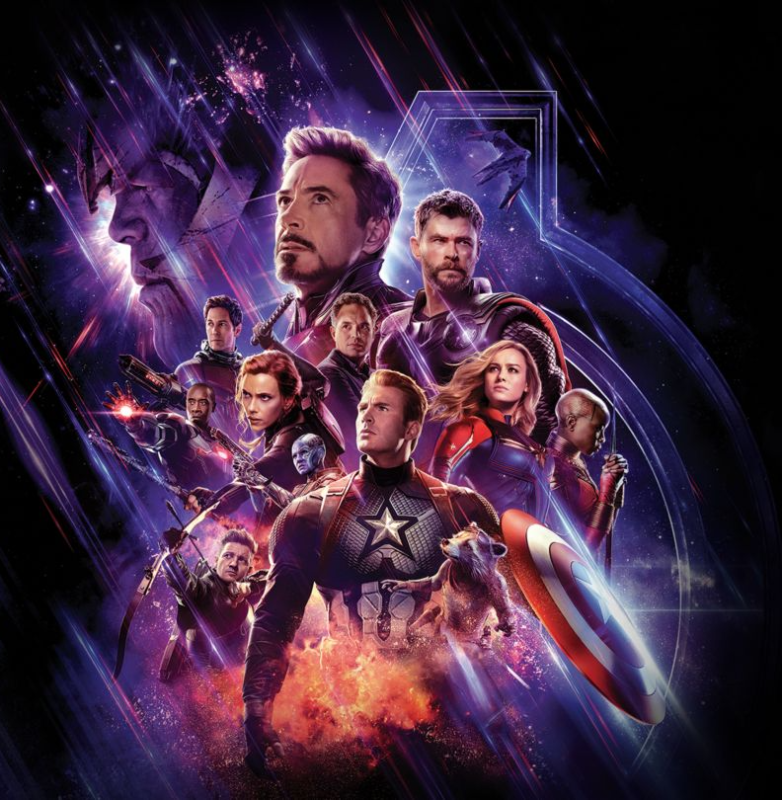Marvel Studios is Dying: Here's What Needs to Happen Next
Marvel Studios is not in the best shape right now. With The Marvels predicted to flop, a new behind-the-scenes Marvel book firing shots at Joss Whedon and James Gunn, and a recent Variety piece titled Crisis at Marvel, superheroes seem to have lost their lustre. So, what caused Marvel Studios’ downturn, and can it be saved?
For me, two key factors are contributing to the decline. Firstly: roadmaps. Before the MCU, roadmaps were something you had in your car. Now they’re a heads-up that in about five years Blade might show up in a scene with Captain America, and people will get mad when they don't say the things they wanted them to say when they scripted the encounter in their brain.
Instead of enjoying the current film for what it is, we’re constantly looking ahead to see how it fits together with the next one. They’re just pieces of a wider puzzle. Before, a single shot of Thor’s hammer stuck in the dirt was enough to spark a frenzy.
Now, we sit through ten minutes of credits to see what D-rank superhero is going to make their entrance, and where they sit on the scale of power compared to 40 others. Marvel has revealed too much of its creative process.

Marvel, Disney
That leads into my second point: it’s impossible to outdo Endgame. The 2019 saga-capping spectacular brought together heroes from more than a decade of Marvel films, a time in which we’ve seen Hulk smash Thor in gladiatorial combat, a nanotech-equipped Iron Man 1v1-ing an infinity gauntlet-wielding Thanos, Doctor Strange navigating mind-bending cosmic dimensions, Ant-Man getting sucked into the Quantum Realm, and Spider-Man wise-cracking in space. How do you follow that?
For Marvel Studios, the answer is raising the stakes to untenable levels. Where 2008’s Iron Man pitted Tony Stark against his business rival, 2018’s Infinity War saw him go up against a villain about to wipe out ten trillion life forms. At some point, it’s all just numbers. And the MCU is only getting bigger.
Now there’s a multiverse, with an infinite number of alternate universes all under threat. Theoretically, we should be infinitely more invested. But that’s not really how it works. Who cares if a hero dies? There’s another one in a different universe. What does a destroyed planet matter? Space is full of them.
To be fair, we brought this on ourselves. Superhero movies are big business. Four Marvel movies occupy the all-time global box office rankings. The studio wouldn’t make them if people didn’t watch. But we’ve had too much of a good thing.
So, what to do? Well, according to Variety’s report, Marvel bosses are considering bringing back the OG heroes in Robert Downey Jr, Chris Evans, and Scarlett Johansson, who were either killed or turned into 90-year-old men in Endgame.
If true, it’s a desperate move, but you can’t blame them. The original core of superheroes resonated deeply with audiences, among the first wave of comic book characters truly done justice in live-action. But it’s not that simple. There was novelty in the superhero team-up. Now it’s a given.

Marvel should instead look to another pop culture force for guidance: Star Wars. From 1977 to 1983, it was the dominant force in entertainment. Then, no cinematic releases for the rest of the ‘80s and ‘90s. That’s 16 years to give audiences breathing room. Then in 1999 we got a film poster showing a bit of Darth Vader’s shadow and everyone went nuts.
Like Star Wars, Marvel Studios needs a timeout. It’s spent more than a decade and a half dominating the box office, which is more than most franchises get (The Matrix was king for four years tops, Lord of the Rings three). And its merchandise, video games, and theme park worlds aren’t going away any time soon.
Not only would going dark help Marvel Studios form its cohesive next phase, but it would reset audience expectations. We don’t need to know what’s going to happen next. In fact, that’s only making it worse.

